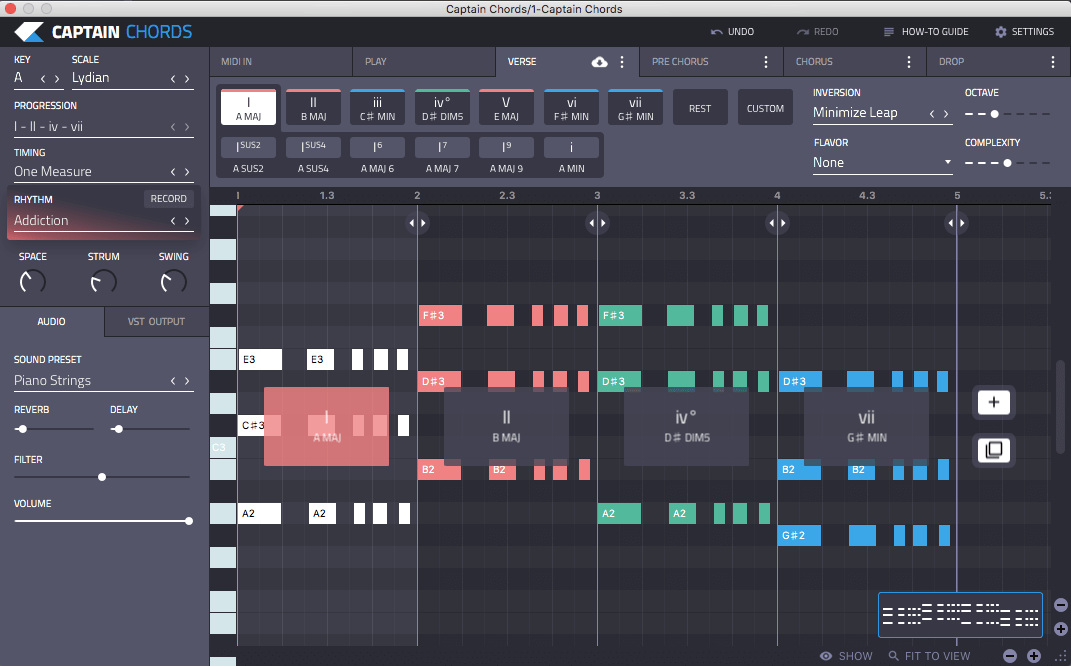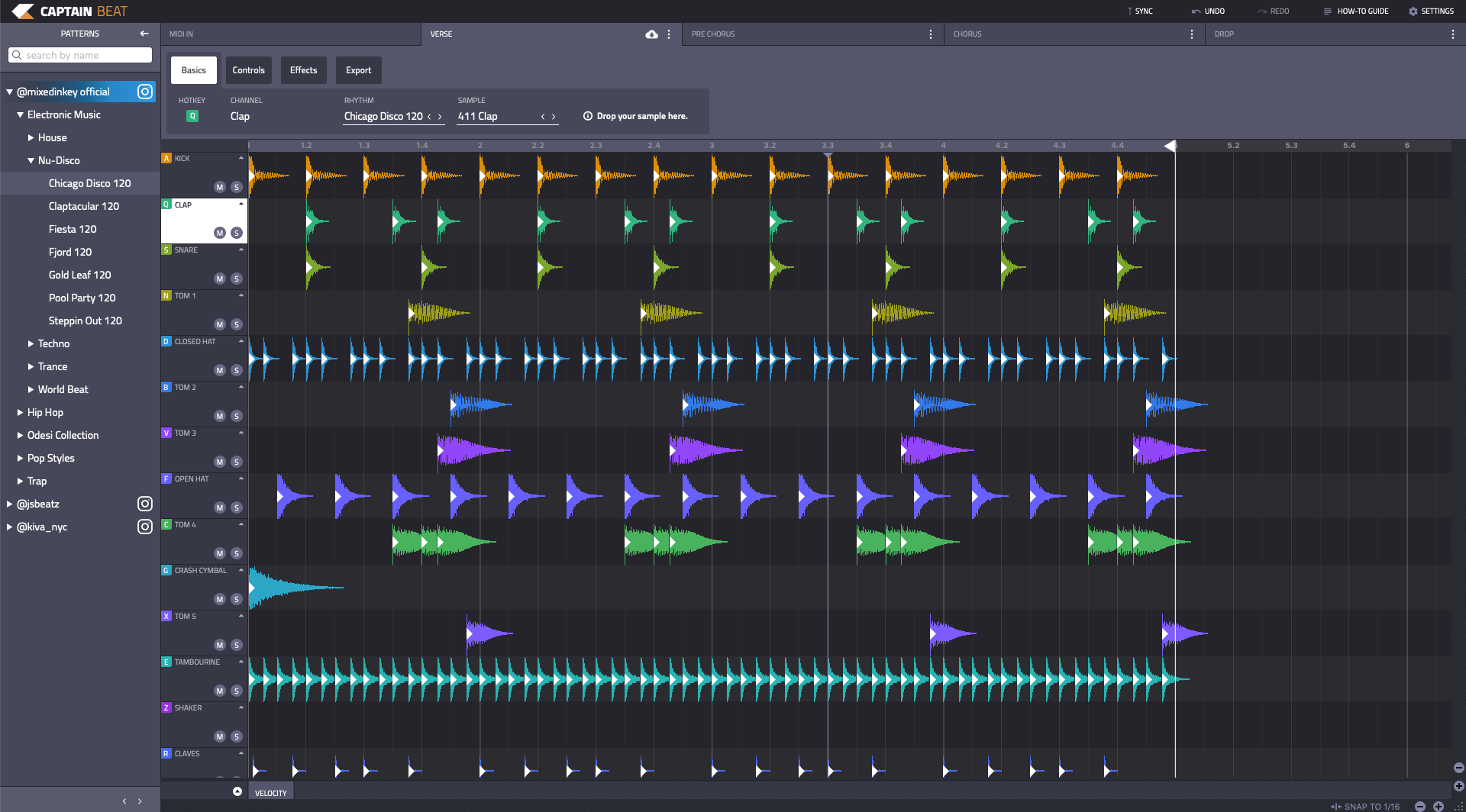Top sources for learning electronic music production.
 Photo by Caught In Joy on Unsplash
Photo by Caught In Joy on Unsplash
We’re in an information-rich era, which is great news for budding music producers. But with armies of people itching to advise and tutor you in every aspect of music production how can we sort the sensei from the senseless?
Adam Hignell can’t vouch for every production tutor out there, but he can suggest a plethora of top sources for learning electronic music production:
Write Chords Faster with Captain Chords
- Use Captain Plugins to write your own Chord Progressions, Hooks, Melodies and Basslines
- Export to your DAW
- Available on Mac and Windows.
Youtube.
Good old Youtube. There’s a free tutorial for everythng under the sun, which has benefits and drawbacks. While online schools and blogs have an inherent quality control mechanism, Youtube is one big hotch-potch of competing videos. Some are brilliant, some are frankly nonsense. Navigating these unregulated waters is tricky, but by no means impossible. And, while the following list of quality Youtube channels are all excellent, there will be many more good ones that you may stumble across. Good channels with enough content rack up subscribers quickly, so at least a few thousand is a good minimum threshold. And usually, a good tutorial video has plenty of views and (mostly positive/grateful) comments, which is often a good omen. And, while there will always be someone ready to contradict, well, anything, it’s still useful useful criteria to bear in mind when learning electronic music production.
Excellent Youtube channels you should follow:
In alphabetical order.
- Ableton (Ableton Live only)
- ADSR Productio Tutorials
- Andrew Huang
- Computer Music Magazine
- Doctor Mix
- EDMProd
- Future Music Magazine
- In The Mix
- L.Dre
- Lessons of KSHMR
- MG The Future
- Mix with the Masters
- Musician on a Mission
- MusicTechHelpGuy (Logic Pro X only)
- Nico Astegiano
- Perfect Circuit
- Point Blank Music School
- Produce Like A Pro
- Pyramind
- Rick Beato
- Sonic Academy
- Slate Digital Tutorials
- Waves Audio
- Wayne.wav
- White Sea Studio
- You Suck at Producing
Online Schools.

One thing Youtube tutorials lack is back and forth. You can’t pause the video, ask a question and carry on. And you certainly can’t get direct training from a professional teacher. Perhaps this is why online schools continue to be so popular – many of us learn so much faster from a real person, even with online content.
Let’s take a look at some of the best options for online music schooling:
Point Blank Music & DJing School.
- Point Blank Music & DJing School
One of the original music production schools, and still one of the best. By attracting elite teachers they can guarantee their courses will be exceptional. Even their list of alumni is impressive, including Claude VonStroke, Goldie, Nicole Moudaber, Leona Lewis, Patrick Topping, Monki and Felix Jaehn. With schools in China, Ibiza, Mumbai and online, you can either get your hands dirty in their professional studios, or find your way from the comfort of your own home. Point Blank has courses focused on every conceivable aspect of music, from industry management to composition, sound design, DJing and writing for video games. Many courses come with free software, and discounts on other products, while another key benefit is Point Blank’s online forum, in which students and teachers share ideas, and very often networking opportunities. In short, Point Blank will help you become a significantly better producer.
- Berklee College of Music
Offering a wide range of qualifications from Certificates to Bachelor’s and Master’s Degrees, Berklee is where to come for globally recognized qualifications your parents will approve of. With over 150 courses available, you can enroll on a crash-course or go deep for a full degree. Berklee have industry experts on their staff list and have helped thousands of artists, musicians and educators begin and improve their careers. You can even sample a free lesson before deciding whether or not to take the plunge.
- Masterclass
Masterclass attempt to do exactly what the name suggests – provide classes from bona-fide masters of their craft. Ergo, you can enroll on a music production class taught by Deadmaus, Timbaland or Armin Van Buuren, or a music composition class from Herbie Hancock or Hans Zimmer. Pretty impressive, I’m sure you’ll agree, and with most courses priced at just under $15 per month, not at all bad value, too.
- Udemy
One mustn’t overlook the importance of Udemy. It’s a gigantic, sprawling marketplace of tutorials on every conceivable creative, digital pursuit. As such, one might not immediately think of it for music production specifically, but it boasts an impressive number of quality courses. Topics such as Music Production I – Learn to be a Music Producer, Music Production II – Music Production Workflow, Music Producer Masterclass: Make Electronic Music and Game Music Composition: Make Music For Games From Scratch give you some idea of the scope and potential value of their offerings. The Udemy website has courses specific to most DAWs, and every course is rated by alumni, which helps you establish which one is right for your needs when learning electronic music production.
- Lynda’s Music Production Path
In 2017, Lynda was acquired by Linkedin to be its skills and training arm, and as such is focused on providing professional-grade training for people serious about advancing their careers. That’s encouraging, because it suggests the content will be good enough to improve the career prospects of current professionals. The Music producion path is a collection of 39 hours of tutorials covering every aspect of becoming a music producer, from composition to mixing and even lyric-writing. While Lynda also has much more focused courses on specific skillsets, the Productoin Path is a great option for those seeking a holistic education. Suitable for beginners and intermediates, the course is $25 a month, although you can have a 7-day triel and it’s free for Lynda members.
- EDM Prod
From humble beginnings, EDM Prod was ‘just’ a blog, but became so popular thanks to its concise, relevant and focused articles, that it developed a range of courses for would-be EDM producers. These courses are extremely popular, and while they aren’t taught by household names, there’s little doubt about their real-world quality.
- Hyperbits Masterclass
Another in the ‘is it a blog? Is it a course?’ camp, Hyperbits have crafted a confidently advertised course for dance music producers. They claim to be better than the rest, which may or may not be true – it’s certainly a well-considered course, with plenty of free add-ons. You’ll receive hundreds of hours of tutorials, a year of live webstream classes, a whole heap of production tools and more. They use 3rd party-plugins, like the pros, which is refreshing. They also have a clever framework to break down complicated topics into bitesize chunks, that link together to develop your understanding.
- Mix and match rhythm patterns per-channel
- Hundreds of high-quality drum sounds
- Play and record rhythms with computer keyboard or MIDI controller
- Sophisticated MIDI editing
- Add your own samples
- Wave-form visualizer
- Advanced audio and MIDI export options
- Captain Plugins Wiki
What, you didn’t expect us to blow our own trumpet? Our Wiki recently reached the landmark of 100 articles, on topics ranging from music theory tips, production advice, workflow ideas and much more.
- EDM Prod
A must-check for those seeking to create modern dance tracks. Every skill is documented, from making huge kick drums to bass synthwork, arrangement ideas and gear advice. The blog augments their music production courses, as detailed above.
- ELEPHNT
Looks supreme, content is superb – what’s not to like about this stylish, Ableton-centric production blog? They offer plenty of content from tutorials and guides to audio and instrument patches, samples and bundles. Developed with Ableton’s Audio and MIDI Instruments in mind, this is an excellent resource for Live users.
- Music Production Nerds
A lovingly curated selection of articles here, that cover all pertinent topics for budding producers. Ranging from tech and gear advice to industry tips, ways to protect your music from exploiation and much more, there’s enough advice here to help any producer.
Facebook groups and Forums.

Bridging the gap between Youtube and online courses, forums and Facebook pages can be great resources. By allowing users to interact in real-time, interesting discussions can emerge. You can ask your own questions, and get a wide-range of answers. Clearly, this isn’t always desirable, and there’s little quality control. However, if you’re prepared to sift through the odd misleading answer, you can emerge with some interesting feedback and an impromptu straw-poll of opinions.
While forum usage has been dwindling in recent years, a few stalwarts remain busy.
Forums.
- Future Producers
- Gear Slutz
- KVR Audio Forum
- Music Production and Audio Engineering
- Music Producers and Artists Connect
- Ableton Live Users
- Logic Pro X Producers
- FL Studio Producers
- Captain Plugins
- Tonebenders
- Audio Skills
- Hanging Out With Audiophiles
- The Mixed In Key Podcast
Worth checking out, for historical conversations and a steady stream of new content. Some excellent producers have passed through here and shared knowledge.
Still a busy forum, thanks to a series of industry relationships to generate business and interest in new products. Ostensibly focused on gear and tech, there are also regular, fascinating mixing and production conversations.
Long-standing topics such as ‘Getting Started AKA “What is the best…”‘ continue to grow as an interesting and thought-provoking conversation, reflecting new trends in music and tech. Search for questions other producers have posed and dig into the results.
Facebook groups.
Very active and an excellent place for fast, useful answers to thorny production issues. Beware posting beginner questions that have been asked before, though!
More of a sub-swapping group, but active and useful for growing networks with subscription swaps.
Some excellent admin posts make this a superb resource.
Come and say hi, and share/discuss your thorny production tips. Generally focused on users of Captain Plugins.
Podcasts.

There’s nothing quite like a podcast for unscripted, free-flowing conversation. Unbound by the need for sparkling video production skills, and devoid of ‘camera-tension’, podcasts can be marvellous resources for learning electronic music production. When it comes to music production, there are some exceptionally useful ones that are well worth investing a quiet hour or two in.
This one is all about sound design, post-production and audio for film and TV. Regular expert guests add to the intrigue.
Every episode addresses a particular topic or issue and offers advice, guidance and tutoring on how to address it.
Jamie Lidell discusses audio and music techniques with some of his favorite artists. It’s a VIP-heavy smorgasbord of 1st-hand insights and professional nous.
Did you know we have our own podcast, too? In it, we ask big questions about music writing, production and the industry at large. Previous conversations with Grammy-winning producer Frank Sicaro and a fascinatng discussion of race in music are particular highlights.
Summary.
Ultimately, nothing makes you a better music producer like hard work, perserverance and dedication. But, with so much expertise available for little to no finanial investment, it’s a no-brainer to try and take advantage. Hopefully these resources for learning electronic music production will give you enough information to guide your path to professional-grade production. Are there any you think we shold have included? Let us know! Email [email protected] and we’ll be delighted to hear from you.
About the author:

Adam Hignell is a music producer, mastering engineer, DJ and label-owner based in Brighton, UK. When not providing content and tech support for Mixed In Key, he produces music under the alias Don Dayglow, provides professional mastering and mixing services, and runs the independent Disco/House label Particle Zoo.
Berklee College of Music.
Masterclass.
Udemy.
Lynda.
EDM Prod.
Hyperbits.
Dance to the beat of a different drum machine.
Captain Beat 5.0: The Ultra-Modern Beatmaking Plugin
Music Production Blogs.

While video content is in ever-increasing demand, some people prefer to learn from books and blogs. As you’d expect, there are some excellent offerings available for learning electronic music production. Here are a few of them:

